The heist at the end of the world... Ed Brisson details his apocalyptic crime comic, Sins of the Salton Sea
The writer delves into his new miniseries for AWA Studios
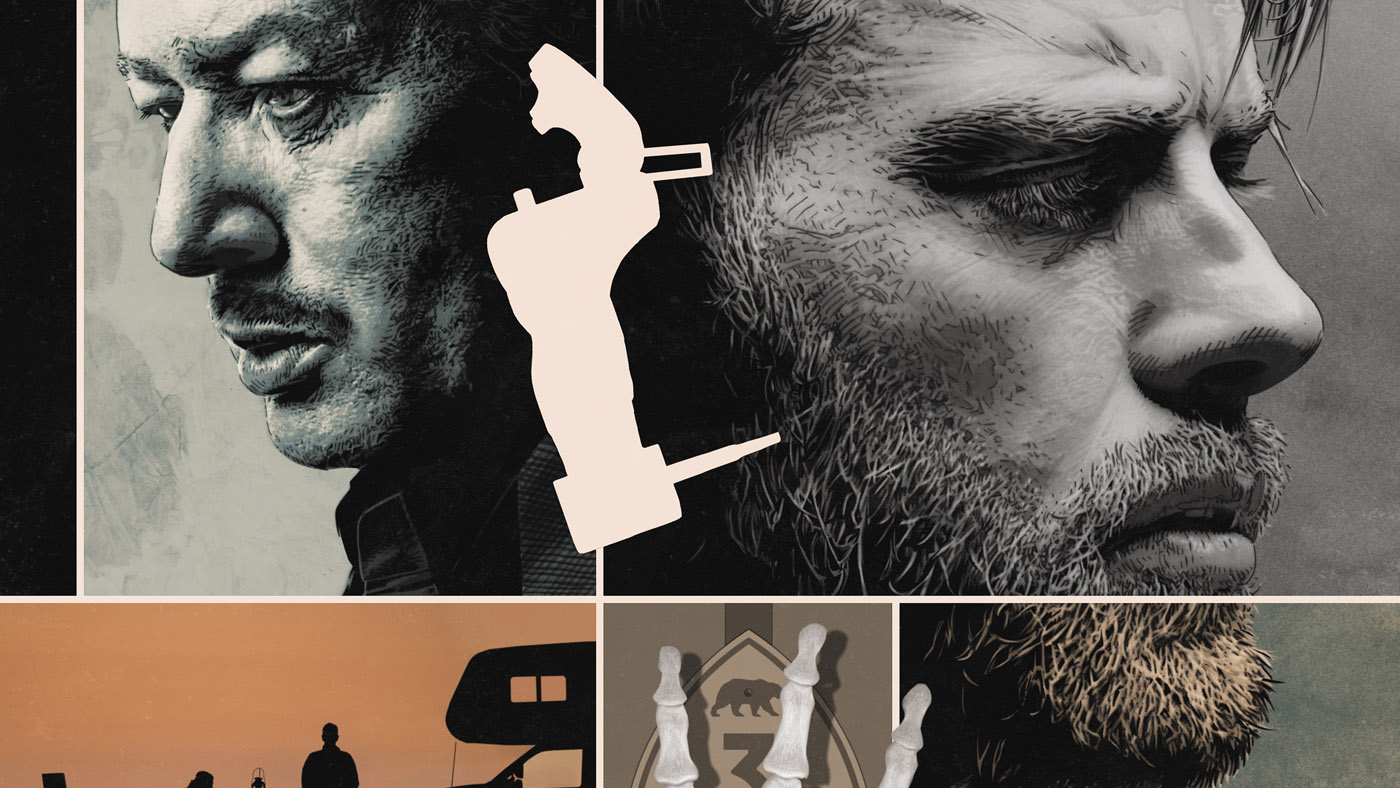
Ed Brisson's comics career has followed a couple of divergent paths. Over at the Big Two he's currently the writer of Batman Incorporated, The Brave and the Bold: Stormwatch, and Marvel's recently-launched Alpha Flight, as well as Predator. He's equally well-regarded, however, for his indie work, including crime and horror comics like The Murder Book and its recent-ish spinoff Catch & Release, and genre-tinged thrillers like The Violent and Sheltered for Image.
He returns to this territory with Sins of the Salton Sea for AWA Studios. The five-issue miniseries, which debuts this week, starts out like a gritty heist thriller before taking a turn for the strange as estranged brothers Jasper and Wyatt reunite to carry out one last job - and find themselves biting off far more than they can chew.
We caught up with Brisson to find out more about the new book, his enduring love of crime and horror stories and the differences between creating his own worlds and writing for established superheroes.
But first, check out the covers for #1 below...
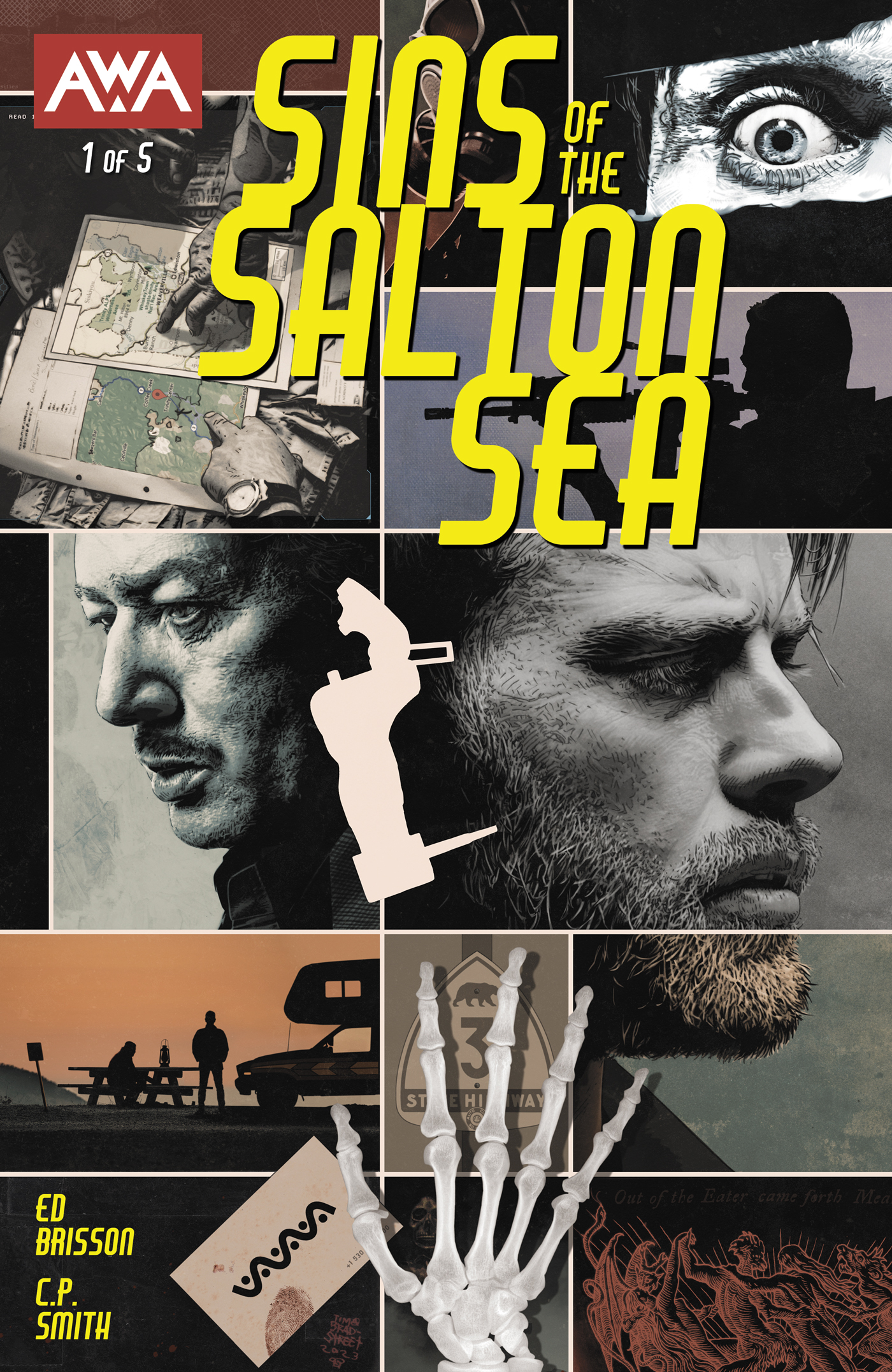
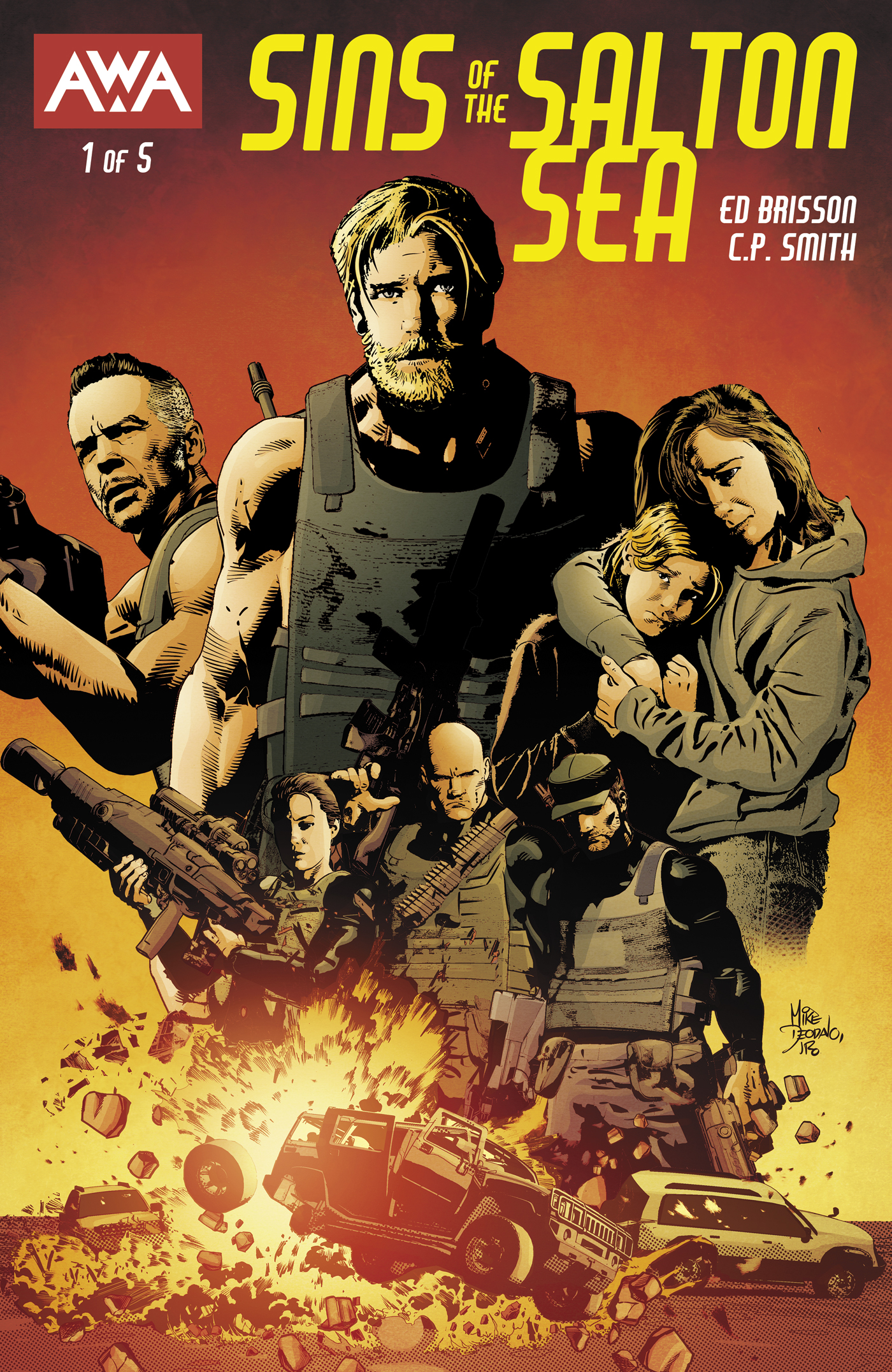
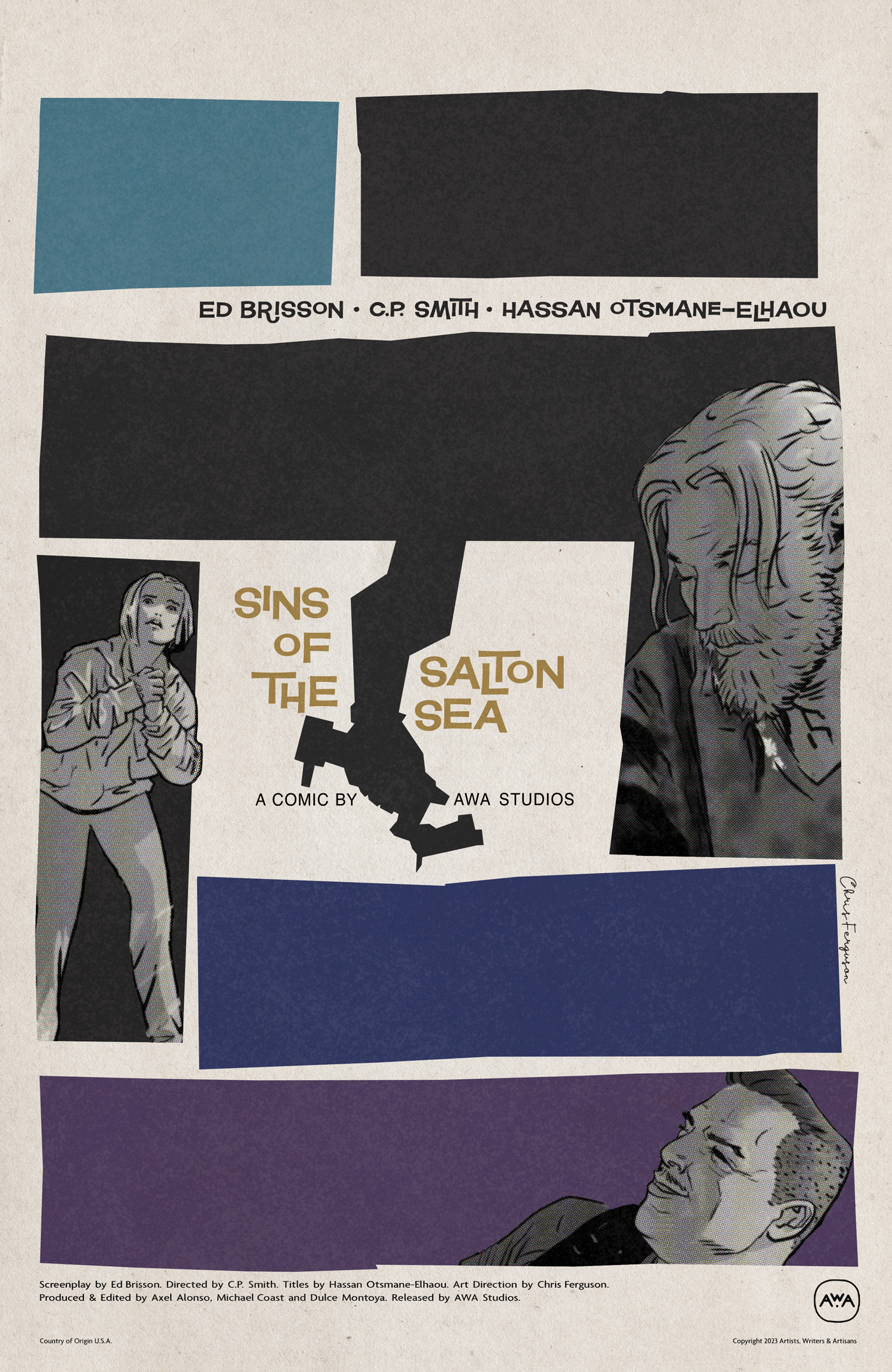
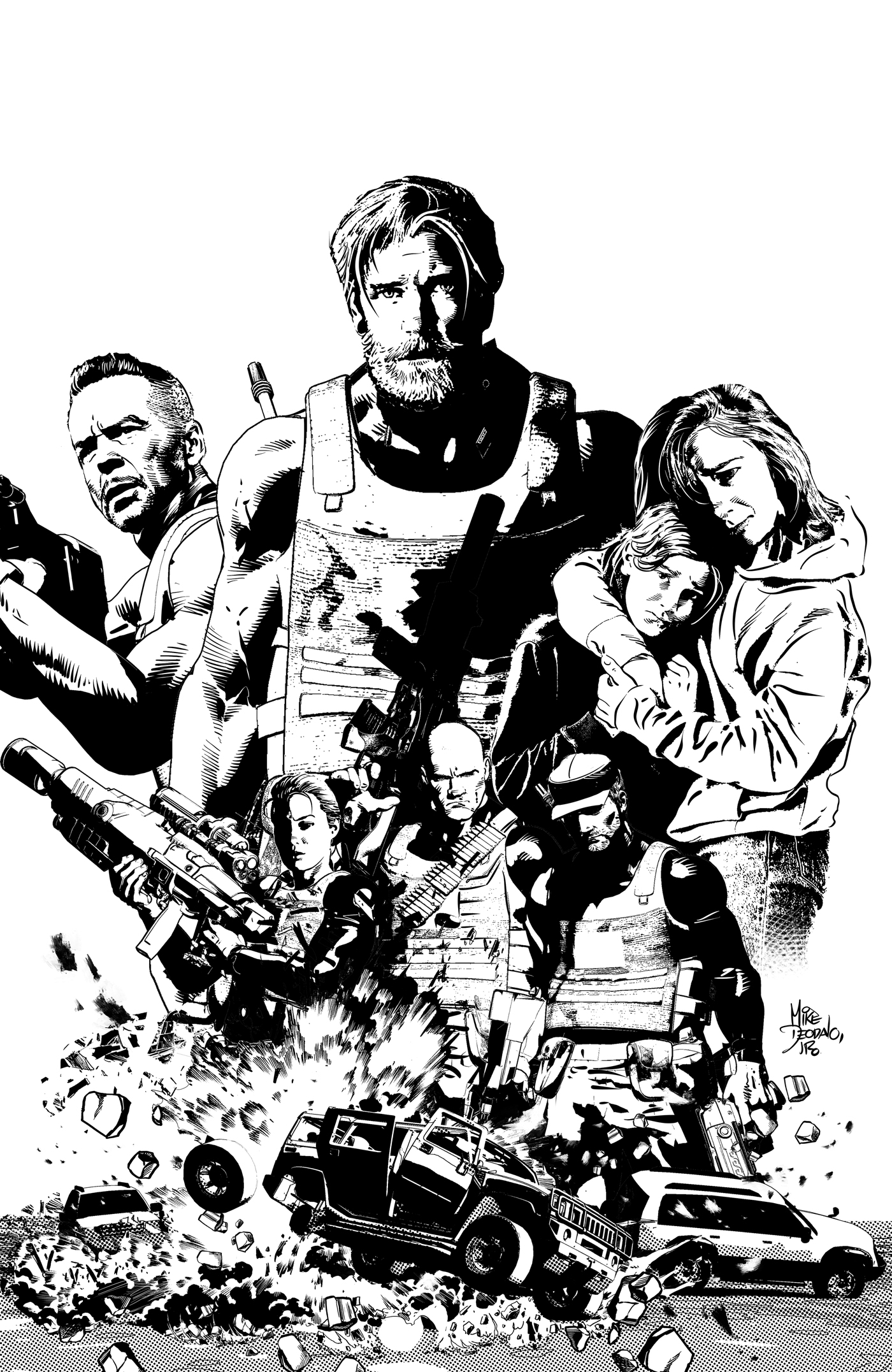
Newsarama: Congratulations on the gripping new book! First off, how would you describe Sins of the Salton Sea to readers?
Ed Brisson: The elevator pitch is: An armored car heist that goes sideways and may be responsible for a coming apocalypse.
Digging deeper, it's really about guilt. Guilt about the things we've done in the past and how that informs who we are, how we view the world, and how we navigate it. Sometimes that guilt clouds our judgement so intensely, that it's impossible to approach a solution in any reasonable or rational way.
Comic deals, prizes and latest news
Get the best comic news, insights, opinions, analysis and more!
Every character within the series has a secret in their past that has had a profound impact on them, I'm not going to reveal those here, but it is an important part of the story that we're telling.
We're following two brothers, Wyatt and Jasper. What can you say about their relationship and what they both want?
They were part of a heist crew. While Jasper is still part of the crew - runs it in fact - Wyatt walked away from the life nearly a decade earlier. He left behind all comforts, drifting from city to city, working odd jobs for cash under the table, using a new name for each place. Wyatt just wants to escape.
Jasper, on the other hand, has remained in the life, but he knows his time is coming to an end. He's looking to make the fabled One Last Score, following a hot lead on a lot of cash, but he can't do it without Wyatt's help.
Wyatt's shackled by his feelings of obligation to family, so when Jasper asks he has no choice but to help, despite desperately not wanting to.

The first issue is a very engaging crime thriller, but there are hints of something weirder going on. Is there anything you can tease about that?
Absolutely. This story starts out like a crime book, but quickly dovetails into horror. Crime and horror are my peanut butter and chocolate. A couple years back, I wrote an issue of Michael Walsh's The Silver Coin for Image which was the first time that I really merged the two genres and I loved it and came out of the experience desperate to continue.
Both genres trade on similar emotional stakes. So launching a book that looks like a crime book and then dovetails into a horror tale doesn't feel like narrative whiplash, it's a natural progression. The stakes just increase from the personal to the global - however, we never lose sight of the grounded and personal, despite the potential world-ending consequences.
Can you talk about the things that inspired the tone of the series?
More than anything, I think the Salton Sea itself influenced the atmosphere and overall feel of the book. It's a desolate, desperate place that has mostly been abandoned and I wanted to bring a lot of that into this book.
In terms of films, music, or comics that influenced, the only one that I can really put a finger on is the John Waters narrated documentary Plagues & Pleasures on the Salton Sea. I saw the film 15 or 20 years ago, primarily due to John Waters' involvement. I'd never heard of the Salton Sea before coming across the documentary, but immediately knew that it was a place that I wanted to set a story.
You're working with C.P. Smith on this. What does he bring to the series?
C.P. Smith has been a dream collaborator. It's been interesting to watch him work, his process is so different from past artists I've worked with. For Sins of the Salton Sea, he changed up his style a bit, coming up with an approach that is almost tailor made for the story we're trying to tell. It's a perfect fit for this chaotic world that Wyatt finds himself caught in. It's big and in your face when it needs to be, then quiet and intimate for the incredibly human, emotion packed moments that make up the heart of the book. The loud and the quiet feel equally important - because they are.
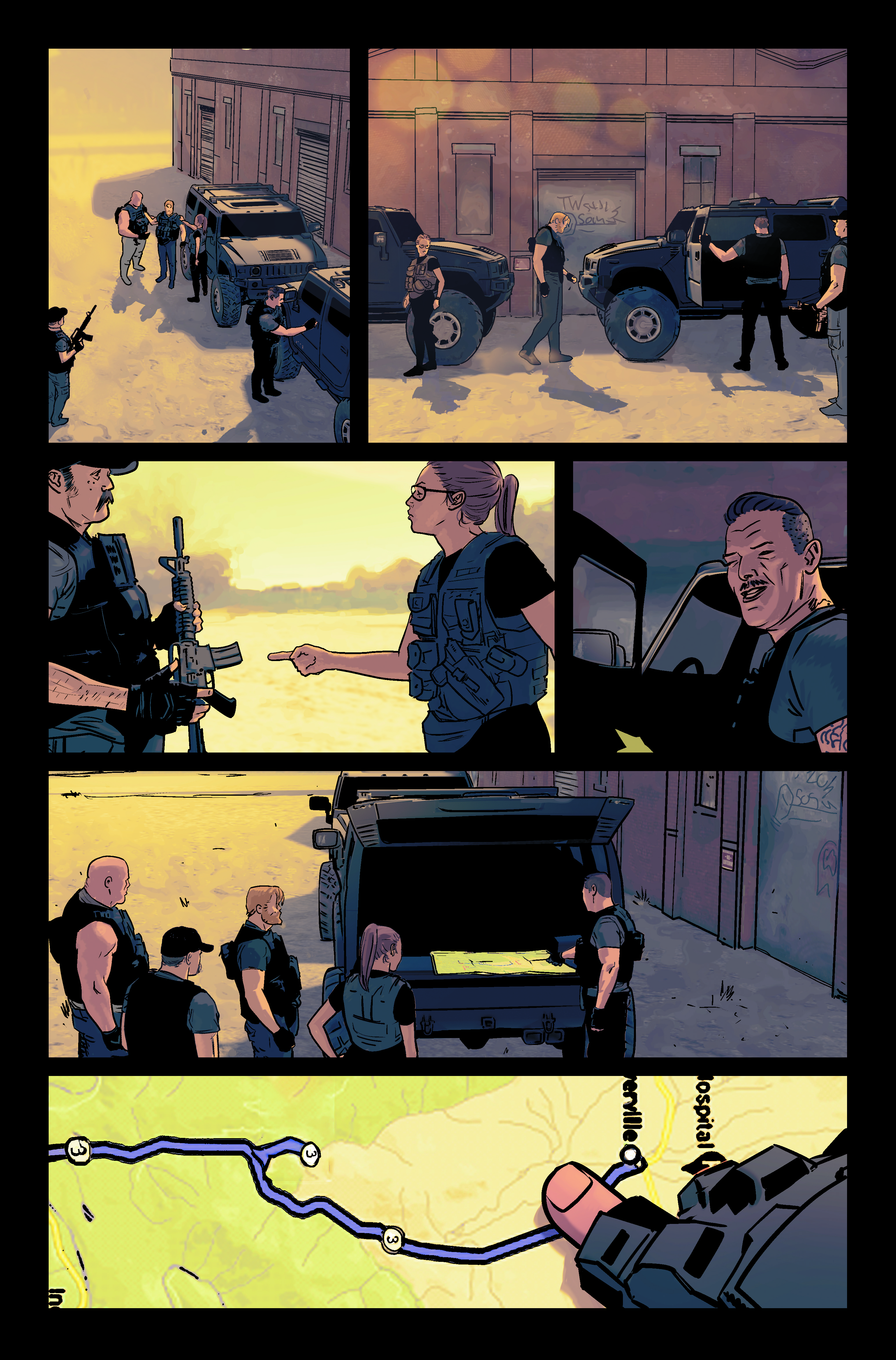
You've written a lot of superhero titles, but you keep coming back to crime comics. What do you love about the genre?
A large part of it is how I grew up. My dad was a cop and my mom was a nurse who also worked with victim services. So, crime was a constant conversation around the house - well, both their houses. They split when I was young.
As a teen, I was often in trouble - especially in my younger teens. Honestly, I'm lucky that I never ended up in juvenile detention. As I got older (and after plenty of counselling) I mellowed out and gave up most of my shitty behaviour. Around the same time, I discovered Elmore Leonard and became obsessed with crime fiction and there was something about it that felt incredibly comforting to me. From there, I discovered Jim Thompson, Richard Stark, Charles Willeford, Richard Price, Carl Hiaasen, Chester Himes, and on and on.
Discovering Sin City and Stray Bullets was a real eye-opener. Up until then, I'd only read Marvel, DC, and Image, all dominated by superheroes (which I still love), but finding these two comics opened my eyes to the possibility of crime comics and I haven't looked back since.
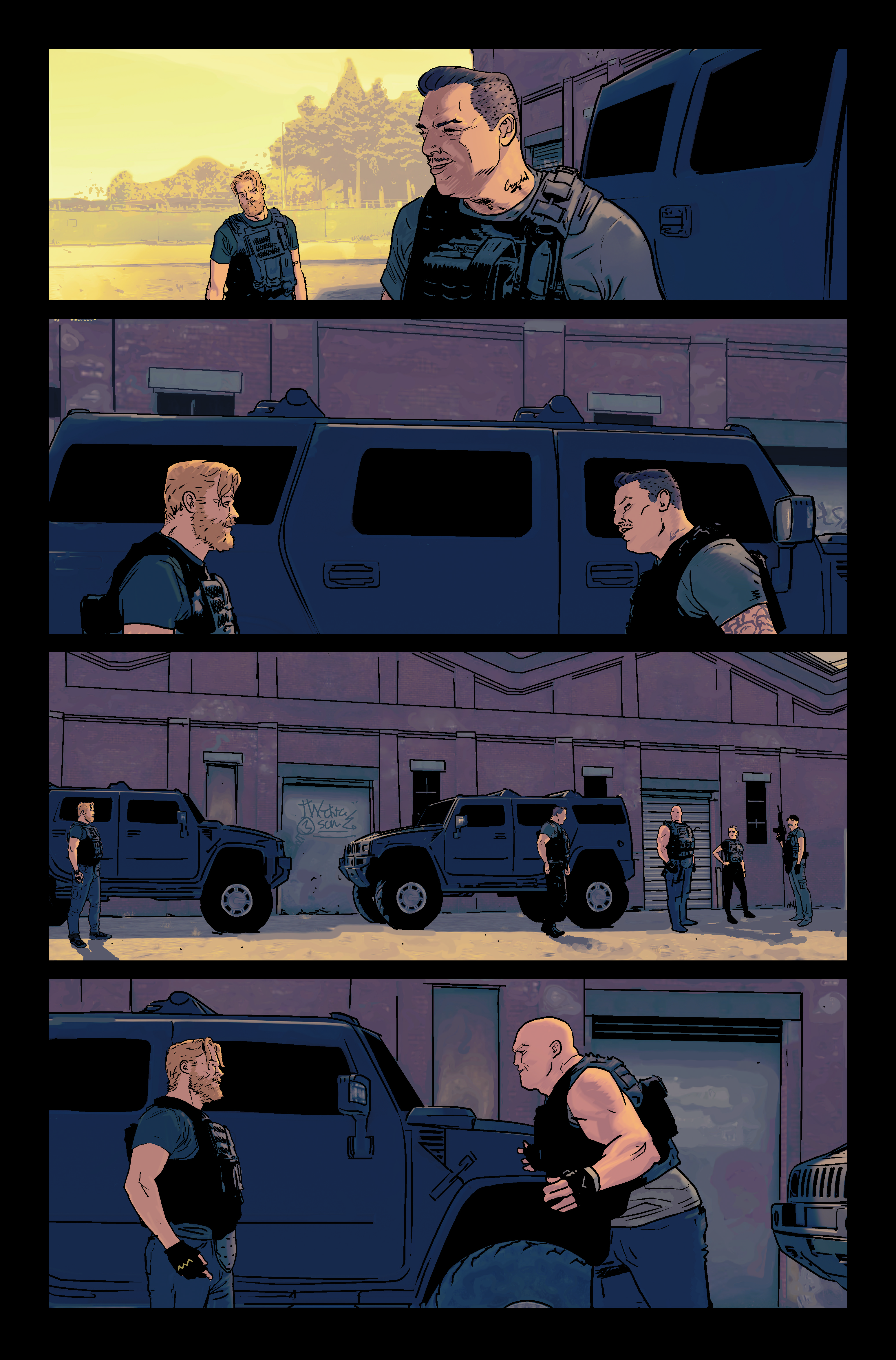
Is there a difference in how you approach an original creator-owned series like this compared to, say, your superhero works for Marvel/DC?
Sure, absolutely. With Marvel/DC, you're generally dealing with established histories and expectations. There's less flexibility on what you can do with the properties that you're working on. At the end of the day, you have to put the toys back on the shelf so that someone else can play with them. So, there are boundaries. Not saying that's a bad thing, at times I prefer having limitations because it challenges me to figure out how to tell the story I want within the confines of what the publisher needs.
But, with a book like this…the sky is literally the limit. The toys belong to C.P. and I and we can break them if we want to. There's not an established history that we need to feel beholden to. We don't have to worry about leaving them in good condition for the next creative team, nor do we have to worry about them coming along and smashing toys that we'd been so precious with. Man, that's a lot of talk about toys.
This is all to say, that sometimes coming in to a creator-owned can be a little terrifying because I don't have that history to lean on. So, when I begin, I try to take as much time as I can to really work out the kinks and think about the world before I set a single word down on paper.
What are you reading at the moment?
On my current pull-list is What's The Furthest Place From Here, Black Cloak, Something's Killing The Children, Phantom Road, Green Lantern, Batman, Nightwing, Daredevil, Punisher, Alien, Saga and I'm sure there are a dozen others I'm forgetting. I'm also currently re-reading a lot of the old Dark Horse Predator comics.
Sins of the Salton Sea #1 is published by AWA Studios on June 7.
Our guide to the best horror comics of all time will chill you to the bones...

Will Salmon is the Streaming Editor for GamesRadar+. He has been writing about film, TV, comics, and music for more than 15 years, which is quite a long time if you stop and think about it. At Future he launched the scary movie magazine Horrorville, relaunched Comic Heroes, and has written for every issue of SFX magazine for well over a decade. His music writing has appeared in The Quietus, MOJO, Electronic Sound, Clash, and loads of other places too.


